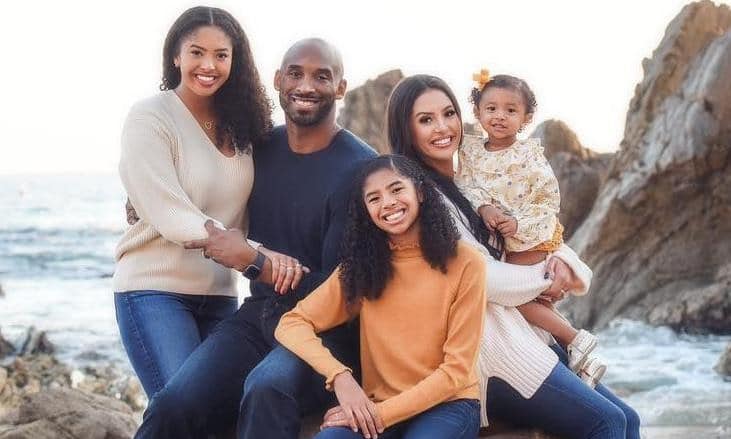
Anyone who has seen the hit Netflix documentary Tiger King: Murder, Mayhem, and Madness can attest that it’s one of the most outlandish stories to come out in a year full of outlandish stories. And while Tiger King’s sordid tale of big cats, murder-for-hire, polygamy, and a missing millionaire may seem too outrageous to have any relevance to your own life, the series actually sheds light on a number of critical estate planning issues that are pertinent for practically everyone.
Over seven episodes, Tiger King provides several shocking, real-life examples of how estate planning can go horribly wrong if it’s undertaken without trusted legal guidance. In this article, we’ll discuss some of the worst planning mistakes made by key people in the documentary, while offering lessons for how such disasters could have been avoided with proper planning.
The Feud
While the documentary’s dark, twisted plot is far too complicated to fully summarize, it focuses primarily on the bitter rivalry between Joe Exotic and Carole Baskin, who are both owners and breeders of big cats. Joe, the self-professed “Tiger King,” whose real name is Joseph Maldonado-Passage, runs a roadside zoo in Oklahoma filled with more than a hundred tigers, lions, and other assorted animals.
Carole is the owner of Big Cat Rescue, a Florida-based sanctuary for big cats rescued from captivity. As an avid animal rights activist, Carole goes on a public crusade against Joe, seeking to have his zoo shut down, claiming that he exploits, abuses, and kills the animals under his care.
The feud between Joe and Carole goes on for decades, and eventually peaks after Carole wins a million-dollar trademark infringement lawsuit against Joe and Joe is ultimately convicted of hiring a hitman to kill Carole and sentenced to 22 years in federal prison.
Although the clash between Joe and Carole takes center stage and exposes key estate planning concerns related to business ownership and asset protection (which we’ll have to cover in a separate article) the most egregious planning errors are made by Carol’s late husband Don Lewis.
Missing millionaire
Don, a fellow big-cat enthusiast who helped Baskin start Big Cat Rescue, mysteriously disappeared in 1997 and hasn’t been seen since. After having him declared legally dead in 2002, Carole produced a copy of Don’s will that left her nearly his entire estate—estimated to be worth $6 million—while leaving his daughters from a previous marriage with just 10% of his assets.
Carole was not only listed as Don’s executor in the will she presented, but she also produced a document in which Don granted her power of attorney. However, the planning documents Carole produced were deemed suspicious by multiple people who were close to Don for a number of reasons.
Don’s daughters and his first wife claim that Don and Carole were having serious marital problems before he disappeared, and that Don was planning to divorce Carole. As evidence of this, we learn that Don sought a restraining order against Carole just two months before he vanished, in which he alleges Carole threatened to kill him. A judge denied the restraining order, saying there was “no immediate threat of violence.”
Don’s daughters also claim that around the time the restraining order was filed, their father created a will that left the vast majority of his estate to them, and he did so in order to minimize any claims Carole might have to his property should he pass away. Additionally, Don’s administrative assistant, Anne McQueen, said that before he disappeared, Don gave her an envelope containing his new will and a power of attorney document, in which he named Anne as his executor and power of attorney agent, not Carole.
Anne said Don told her to take the envelope to the police if anything should happen to him. According to Anne, the envelope with Don’s planning documents was kept in a lock box in Don’s office, but she claims Carole broke into the office and took the documents 10 days after he disappeared. Anne believes Carole forged the will and power of attorney she ultimately presented to the court.
Carole vehemently denied all of these claims. She further alleged that Don sought to disinherit his children in his will, and it was only at Carole’s suggestion that Don left them anything at all.
Although law enforcement investigated Don’s disappearance from Tampa to Costa Rica, Hillsborough County Sheriff Chad Chronister said the investigation failed to uncover any physical evidence, only a conflicting series of stories and dead ends. In light of this, Don’s estate passed through probate in 2002, and his assets were distributed according to the terms of the will Carole presented, leaving Carole with the bulk of his $6-million estate, and leaving Don’s daughters with just a small fraction of his assets.
While there’s more to the story surrounding Don’s planning documents and Carole’s suspicious actions, let’s look at the planning mistakes Don made and how they could have been easily prevented.
The Big Lesson: Always work with an experienced estate planning lawyer when creating or updating your planning documents, especially if you have a blended family. If Don’s children and assistant are correct and Don created a will that left his daughters the bulk of his estate and disinherited Carole, it appears he did so without the assistance of an attorney. This was his first big mistake.
There are numerous do-it-yourself (DIY) estate planning websites that allow you to create various planning documents within a matter of minutes for relatively little expense. Yet, as we can see here, when you use DIY estate planning instead of the services of a trusted advisor guiding you and your family, the documents can easily disappear or be changed without anyone who can testify to what you really wanted. In the end—and when it’s too late—taking the DIY route can cost your family far more than not creating any plan at all.
Even if you think your particular planning situation is simple, that turns out to almost never be the case. There are a number of complications inherent to DIY estate plans that can cause them to be ruled invalid by a court, while also creating unnecessary conflict and expense for the very people you are trying to protect with your plan.
And while it’s always a good idea to have a lawyer help you create your planning documents; this is exponentially true when you have a blended family like Don’s. If you are in a second (or more) marriage, with children from a prior marriage, there’s an inherent risk of dispute because your children and spouse often have conflicting interests, particularly if there’s substantial wealth at stake. The risk for conflict is significantly increased if you are seeking to disinherit or favor one part of your family over another, as Don was claimed to have done with Carole.
Finally, as we saw with Don, if your loved ones can’t find your planning documents—whether because they were misplaced or stolen—it’s as if they never existed in the first place. Yet, if Don had enlisted the support of an experienced planning professional, his documents would have likely been safeguarded from being lost, stolen, or destroyed.


![]()








